#Jean-Jacques Denis
Text
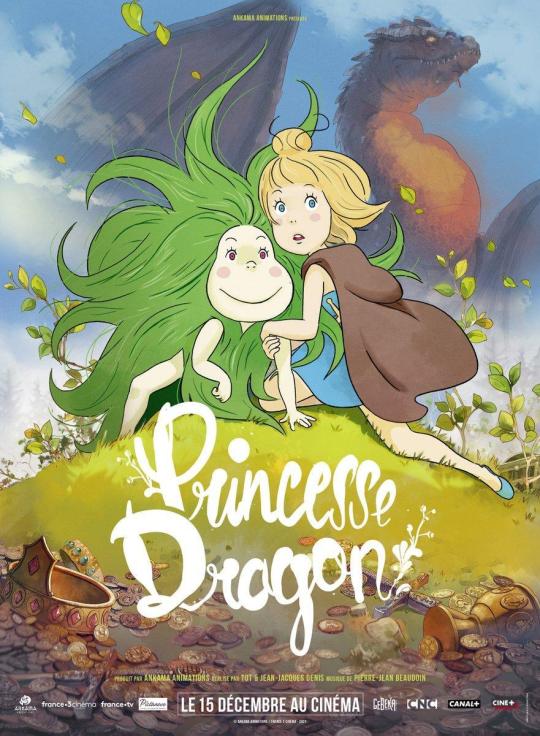

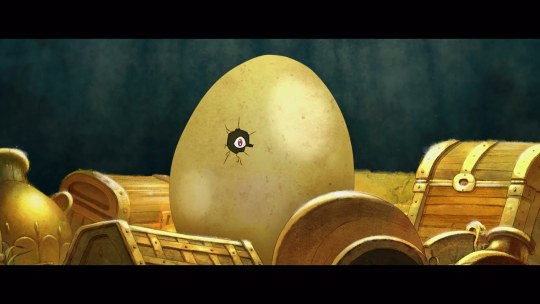
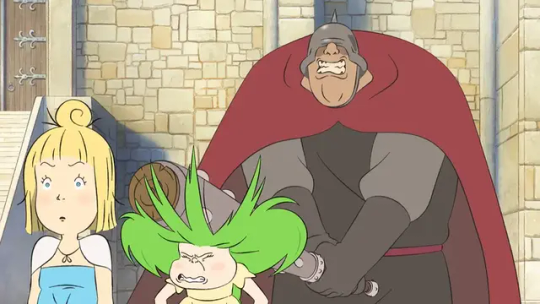
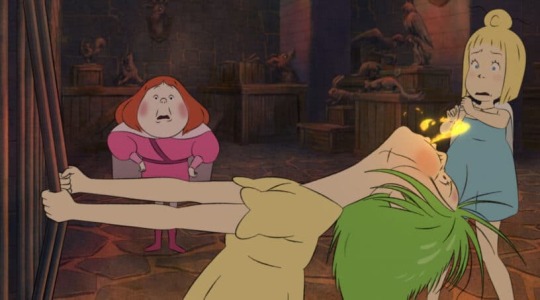
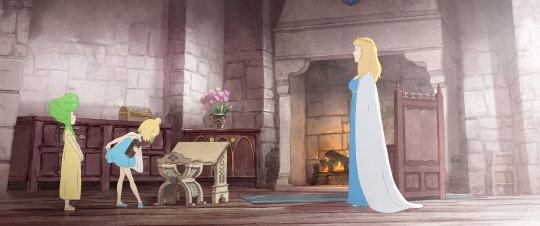

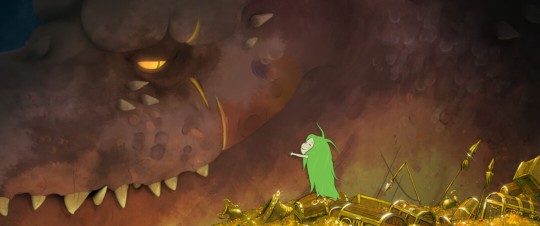
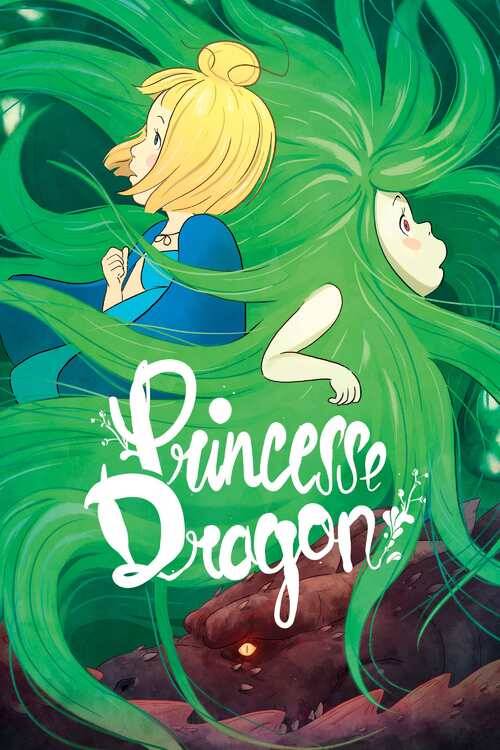
Princesse Dragon (2021)
Film // Película
#Princesse Dragon#Princesa dragón#animación#animation#francia#fr#Anthony Roux#Jean-Jacques Denis#Ankama
7 notes
·
View notes
Text
"I am born to love you and to cause you annoyance."
- D. Diderot in a letter to J. Rousseau (Packet A, No. 52)
From the same letter Rousseau almost thrown in a fire :(
Fyi, I have marked the passage with a sticky note that now reads 'forever in awe of the writing style of 1700s M/M letters' and 'some JJ/DD cause I'm not God's strongest soldier'
#JJ is always trying so hard to make Diderot look like a snake but he always ends up coming across as a genuinely great guy in Confessions#tw: jj#rousseau#jean jacques rousseau#confessions#denis diderot#diderot#age of enlightenment#1700s#18th century#history memes#men of letters#philosophy#philosophy memes#enlightenment#queer history#potentially#in my heart at least
75 notes
·
View notes
Text
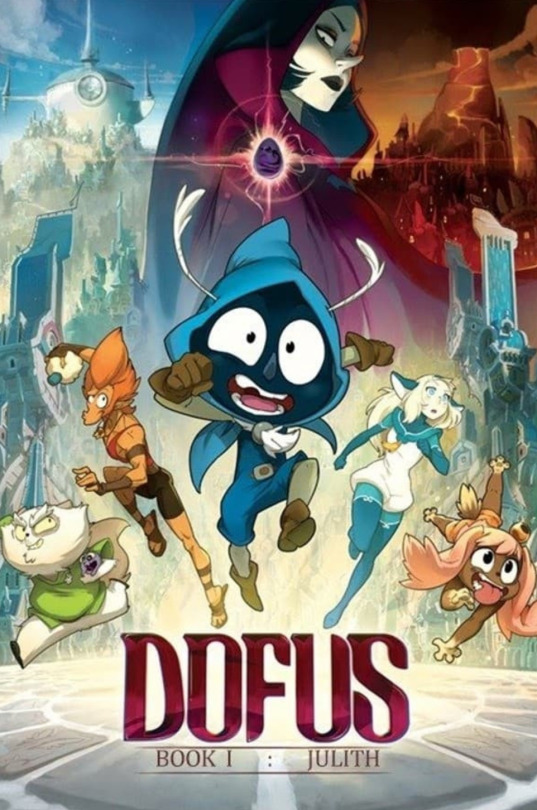
#movies#polls#dofus book i: julith#dofus book i julith#dofus#2010s movies#anthony roux#jean jacques denis#ankama#requested#have you seen this movie poll
81 notes
·
View notes
Text
youtube
Alchemists, a short film by Heidi Blomkvist
#film#short film#nfb#heidi blomkvist#national film board of canada#david verrall#denis l. chartrand#normand roger#mozart#wolfgang amadeus mozart#jacques avoine#pierre landry#lynda pelley#jennifer small#onf#jean pierre joutel#Youtube
20 notes
·
View notes
Text
#Aristotle#Lesbian love#western concepts of love#denis de rougemont#jean jacques rousseau#Katarina Majerhold
3 notes
·
View notes
Text
I was watching this interview with Felipe Massa, and here is some trivia about Kimi:
Felipe says Kimi is one of the strangest guys he’s ever met, but that he was a very fair and honest teammate. He wasn’t the type to insist on having things his way, and they could move on easily from any situation.
A big reason why Felipe thought Kimi was strange is that while he was usually quiet and spoke very little, after two glasses of anything he would become extremely chatty and touchy-feely, to the point that you’d have to shut him up if you wanted to get a word in! To quote Felipe: “It happened a lot of times, after a race, seeing him at night at a party and he, damn, he’d stick to you and wouldn’t stop hugging you and talking and telling stories and talking and talking and talking! And you’d be like, ‘Dude, let me talk too!’”
In a separate interview he says that when Kimi joined Ferrari, Jean Todt told him that he could drink if he wanted, but that he didn’t want to read tabloid stories about him falling down drunk in clubs like at McLaren. According to Felipe, Kimi respected that request and the team and no such stories were heard during his time there.
During January 2008 at Madonna di Campiglio, Kimi arrived to dinner a little tipsy, and continued drinking there. Michael Schumacher was also there at the same table (full of F1 and MotoGP drivers), wearing boots, leather trousers and a big metal belt buckle that made him look "like a cowboy" in Felipe's own words. A drunk Kimi decided to mess with him and started calling him “Texas Ranger.” At first Michael ignored him, but eventually pretended to find it funny because everyone else was laughing.
That same night, presumably after the dinner, Kimi cut the queue for the cable car. The trip down the snowy mountain took about ten minutes, and at the end he got out of it… naked. In negative 5/6 degrees Celsius. The man operating it (a ~70 year old Italian man), upon seeing the newest Ferrari world champion naked, exclaimed “Mamma mia! Mamma mia!”
Felipe says that Kimi mellowed out a lot after having kids, and that he’s a very hands-on father. One time Kimi’s son was playing with Felipe's son, and Kimi was keeping an eye on him by himself.
Some other tidbits I found interesting:
When Felipe was a child, Ayrton Senna refused to give him an autograph. That stayed with him for the rest of his life, and he has never been able to refuse a child an autograph. One time he was in a car with Michael Schumacher and there were a lot of people asking for autographs outside. One of them was a little boy, tapping on the car window. After a while of Michael not reacting, Felipe couldn't stand it and eventually nudged him and asked him to give the boy an autograph. Michael did so (and gave more people autographs in the process), and later when Felipe shared his experience, Michael told him he'd been right.
Felipe believes that Fernando Alonso knew about Crashgate. He doesn't have any proof and Fernando denied it when he brought it up (jokingly, Felipe said something like "that time you fucked me over"), but just from knowing him as a teammate Felipe is sure he knew.
One time Felipe peed in Jacques Villeneuve's drinking bottle.
#the main reason i posted this is bc of the texas ranger thing bc that's one of the first bits of F1 lore i learned lol#felipe is legit such a gossip. you ask him about x and he'll throw in y and q as well#like at some points i was like omg felipe SHUT UP THIS ISN'T YOUR BUSINESS DON'T SAY THAT NO ONE ASKED#anyway#felipe massa#kimi räikkönen#t
96 notes
·
View notes
Text
As used, the term ‘precolonial’ Africa and the distortions it represents cannot illuminate our understanding of Africa and its history.
More importantly, it is wrong to think of colonialism as a non-African phenomenon that was only brought in from elsewhere and imposed on the continent. Africa has given rise to a rich tapestry of diverse colonialisms originating in different parts of the continent. How are we to understand them? For example, if ‘precolonial Morocco’ refers to the time before France colonised Morocco, it must deny that the 800-year Moorish colonisation of the Iberian Peninsula, much of present-day France and much of North Africa was a colonialism. For, if it were, then ‘colonial Morocco’ must predate ‘precolonial Morocco’. I do not know how any of this helps us understand the history of Morocco. Similarly, a ‘precolonial’ Egypt that refers to Egypt before modern European imperialism would also deny Mohammed Ali’s colonial adventures at the head of Egypt in southern Europe and Asia Minor. Was ancient Egypt part of some precolonial formation? That strains credulity. To conceive of the history of Africa and Africans in terms only, or primarily, of their relation to modern European empires disappears the history of Africans as colonisers of realms beyond the continent’s land borders, especially in Europe and Asia.
It is bad enough that the term distorts the history of African states’ involvement in overseas provinces. It is worse that it misdescribes the evolution of different African polities over time. The deployment of ‘precolonial Africa’ is undergirded by a few implausible assumptions. We assume either that there were no previous forms of colonialism in the continent, or that they do not matter. We talk as if colonialism was brought to Africa by Europe, after the 1884-85 Berlin West Africa Conference. But it takes only a pause to discover that this is false.
African history is replete with accounts of empires and kingdoms. By their nature, empires incorporate elements of colonisation in them. If this be granted, Africa must have had its fair share of colonisers and colonialists in its history. When, according to the mythohistory (the founding myth of the empire) of Mali, Sundiata gathered different nations, cultures, political leaders and others to form the empire in the mid-13th century, he did not first seek the consent of his subjects. It was in the aftermath of their being subdued by his superior force that he did what Jean-Jacques Rousseau in the 18th century insisted all rulers should do if their rule is to escape repeated challenges and last for an appreciable length of time: turn might into right. Ethiopia, another veritable empire, is a multinational, multilingual, multicultural state whose members were not willing parties to their original incorporation into the polity. Whether you think of the Oromo or the Somali, many of their successor states within Ethiopia are, as I write this, still conducting anticolonial struggles against the Ethiopian state.
132 notes
·
View notes
Text

Fantasy caricature?
The Savage Man (1767)
One for @enlitment as a Coda to your reading of 'Confessions'. I present: the Savage Man!
In Jan 1767, James Boswell, who had become entangled in the infamous squabble between Jean-Jacques Rousseau and David Hume, published a humorous note in the London Chronicle. In it, he claimed that a print would soon appear, satirising JJ in the most ludicrous manner, presenting him as a hairy savage dressed in nothing but leaves being tormented by his foes. [He is shown trampling on coins and papers, alluding to his rejected pension and the Letters published by Hume]. Hume approaches from the left, dressed as a farmer carrying a basket with a huge fish lettered, "a Dinner / I have you Rousseau". Behind him, a doctor applies a clyster while another says, "He's Costive" [no idea what this means]. On his right, Voltaire, riding a hobby horse, flicks Rousseau's bum with a wet towel saying "I'll whip him into humanity", while Peter the Wildboy eggs him on. In the background, three apes gaze upon the scene, one exclaiming, "The Inequality of Mankind"!
In fact Boswell's notice was a complete fabrication dreamt up by his feverish imagination, for he he had become peeved at Rousseau's sudden coldness towards him. This had nothing to do with Hume and likely a lot to do with Therese's confession of her "thirteen times a night" (at least that's what Boswell told his diary) cross-Channel indiscretion with her 'patient' and 'employer'. At least JJ had been denying she was his mistress in correspondence since 1754. Anyway, I digress. The point is that some enterprising engraver decided to bring Boswell's verbal sketch to life and a print was duly executed.
18 notes
·
View notes
Text
On this day of 10 Thermidor :rest in peace Robespierre Maximilien, Couthon Georges, Lavalette Jean Louis Baptiste, Hanriot François,Saint-Just Antoine, Payan Claude-François,Vivier Nicolas Joseph,Gobeau Adrien-Nicolas,Lescot-Fleuriot, Augustin-Bon- Joseph Robespierre, Jacques-Claude Bernard , Antoine Gency, Simon Antoine, Denis-Etienne Laurent, Jacques-Louis Frédéric Warme, Jean-Etienne Forestier, Nicolas Guerin, Jean-Baptiste-Mathieu Dhazard, Christophe Cochefer, Charles-Jacques-Mathieu Bougon and Jean-Marie Quenet.
#frev#french revolution#thermidor#remember all the good and bad sides of the executed#deserve better#like many revolutionaries#10 thermidor
21 notes
·
View notes
Text
Lestat & books (TVL edition)
Featuring all works of literature mentioned in the text of The Vampire Lestat.
Mark Twain, mentioned without any specific works of his;
William Shakespeare, with "Macbet" being a particular favorite. "Tommorow, and tommorow, and tommorow" is also Lestat's favorite monologue to perform;
Henry Rider Haggard, a British novelist who wrote "King Solomon's Mines' and "Cleopatra";
Dashiell Hammet, "The Maltese Falcon" about the adventures of Sam Spades;
Poets of the Italian Renaissance: Francis Petrarch, Giovanni Boccaccio and Dante Alighieri are the most famous;
Charles Dickens ("A Tale of Two Cities", I imagine, or "Great Expectations". Post-trial Lestat might also like "A Christmas Carol")
Ernest Hemingway post-1930, possibly "For Whom the Bell Tolls", which seems to be his novel most in line with Lestat's taste in literature;
Denis Diderot, the Enlightenment philosopher and writer, co-creator & chief editor of The Encyclopédie, also wrote La Religieuse, a novel that featured very outspoken critique of the Catholic Church;
Jean-Jacques Rousseau, who famously wrote "The Social Contract, or Principles of Political Right" & "Discorse on the Origin and Basis of Inequality Among Men", and was the main inspiration of the Jacobins during the French Revolution;
Voltaire, both as philosopher ("Letters concerning the English Nation", "Idées républicaines", etc.) and playwright ("Oedipus", "Iréne", "Socrate", etc.);
Pierre Corneille (a playwright: "Le Cid", "Horace", "Cinna" and "Polyeucte");
Jean-Baptiste Racine (another Classicist French playwright, author of "Alexandre le Grand", "Andromaque" & "Iphigénie");
Molière, yet another French playwright ("Don Juan, or, The Stone Banquet", "L'Amour médecin", "Psyché");
Whatever classics Lestat has read in Latin during his & Gabrielle's stay in Venice. She specifically mentioned Plutarch, Egyptian and Greek myths;
John Polidori, "The Vampyre";
Sheridan Le Fanu, "Carmilla";
And, with great distaste, Bram Stoker's "Dracula"
#iwtv#tvc#lestat de lioncourt#the vampire lestat#he sure has great taste in literature for an ~illiterate (some say) person#(except haggard i tried him during my adventure novels phase in the 8th grade)#thinking about doing this for qotd once i finish rereading it
17 notes
·
View notes
Text
Kinda losing my mind over the yassified French Philosopher stickers I've found on Redbubble...


Diderot, JJ, but especially this incredible high-femme serving Voltaire:

#don't get me wrong the artist is clearly talented but?#what's going on there??#denis diderot#diderot#jean jacques rousseau#rousseau#voltaire#age of enlightenment#french history#philosophy#french philosophy#philosophy memes#1700s#frev#qu(o)eue vadis
80 notes
·
View notes
Text

Léon Benigni, Cover Illustration for Femina Magazine, Modes d'hiver, circa 1929.
Biography
A leading fashion illustrator, draughtsman and lithographr, Léon Benigni worked with such designers and couturiers as Jeanne Lanvin, Marcel Rochas, Elsa Schiaparelli, Lucien Lelong, Jacques Fath, Jean Patou, Nina Ricci and Cristôbal Balenciaga. He produced drawings and cover designs for such magazines as Harper’s Bazaar, Femina, La Donna, Art Goût Beauté, The Bystander and Modes et Travaux, and also designed a number of travel posters in the 1920s and 1930s (notably one for the spa and ski resort of Brides-les-Bains in the Savoie region) and advertisements for Cadillac and LaSalle cars. In an appreciation of Léon Benigni, published in an English magazine article in 1933, it was noted that ‘M. Benigni is known to thousands through the medium of the leading fashion magazines. This young Frenchman has brought himself to the front rank of modern fashion artists. He has developed a style which fits perfectly with present ideas of fashion. Modern fashions contain an element of caricature, though they never lose their delicacy and charm. These qualities are apparent in Bénigni’s work. In avoiding heaviness and an exact representation, he works in line, and his line work is light and suggestive enough in its simplicity to hold all the attraction so necessary in publicity. The female face is depicted almost as a formula of design. The thin lines in which it is traced are not an accurate representation, but it is impossible to deny the conviction of reality carried by the design…an addition or alteration to any of these drawings of Bénigni’s, in the form of a few extra lines or corrections, would ruin the effect. They are, for their purpose, complete as they stand.’ (x)
#Léon Bénigni#1920s#illustration#cover#1929#1929 illustrations#20s#20s fashion#20s covers#20s illustrations#jazz age#the roaring twenties#opera#opera coat#opera gloves#femina#femina cover#cover art#art deco#art deco cover#art deco illustration#modes#modes d'hiver#femina magazine#magazine#20s magazines#Leon Benigni#Léon Benigni
30 notes
·
View notes
Text






Noooo, Jean-Jacques I complimented your soup and your tailoring handwork, how could you do this to me??
I have never seen this show and know absolutely nothing about it! As that is the fun of having me liveblog this, please let it be fun for EVERYONE by not confirming denying, hinting, saying things like “oh just wait til episode x’, telling me about outside interviews, or anything that is cultural or historical that I’m not picking up on! PLEASE LET ME BE A STUPID PIECE OF SHIT
7 notes
·
View notes
Text
The Development of French Women’s Rights — according to Carla Hesse
Women’s status in relation to their husbands during the Revolutionary era:
“Legal reform, however, did not go so far as to render the civil status of married women equal to that of their husbands. This radical proposal, initiated by the legislator Jean-Jacques-Régis de Cambacérès, was definitively rejected by the Convention in 1793. So even at the revolutionary high water mark, the legal standing of married women still remained contingent to a certain extent on the will and consent of their husbands.”
Divorce and other rights in the New Regime:
“By abolishing in 1791 guild restrictions imposed by the former regime, revolutionary legislators opened all professions, including publishing and printing, to women, as long as their husbands (if they were married) consented. Prescriptive primogeniture was abolished and divorce legalized in September of 1792.”
***Divorce was legalized in September 1792, but abolished in 1816 during the Restoration after the fall of Napoleon.
Women’s status in relation to their husbands under the Old Regime:
“Under the Old Regime, in short, a married woman’s right to publish her work was contingent on her husband’s consent. She was not permitted to sign any contracts without her husband’s consent, she could not, on her own, make a legally binding arrangement with a publisher. And, if she did publish, the legal claim to her work belonged to him unless he explicitly authorized his wife to act on her own behalf.”
“Few women wrote and published under the Old Regime, and many of those who did were legally separated, unmarried, or widowed. Perhaps the two most widely read women writers of the eighteenth century, Mme de Gaffigny and Mme Riccoboni, for example, did not in fact begin their literary careers until after they were separated from their husbands.”
A conclusion from the author:
“They were denied the vote in 1789, prohibited from political mobilization during the Terror, denied civil equality within marriage.”
Source: Carla Hesse, The Other Enlightenment: How French Women Became Modern
#Carla Hesse#The Other Enlightenment: How French Women Became Modern#women#napoleon#napoleonic era#women’s history#Marcel Garaud La Révolution française et la famille#history#french history#napoleonic#french revolution#frev#France#quotes#révolution française#la révolution française
31 notes
·
View notes
Note
These asks are fun! I can’t wait to see what stories you have in the works 🖤
🍒What genres/tropes do you find yourself using most often?
🥝Who are your literary influences, and have they shaped your own writing?
🥕What's your favorite fic you've written, and why?
🍔What's a headcanon that hasn't made it into a published fic yet?
Thank you for sending this! It's like most of the gang's all back! Let's keep this craziness going for a while!
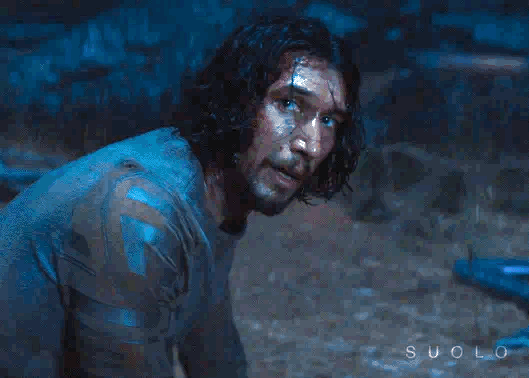
🍒What genres/tropes do you find yourself using most often?
My two favorite genres to write, as if it isn't obvious xD, Are adventure and Horror. For tropes, if these are tropes, I love Bitchy Banter, Strong Women Kicking Ass, Men Having a #BadTime, and Manly Men Doing Manly Things. I really can't get enough and although I should probably branch out more, I just love these so much I want to wallow in them over and over xD.
🥝Who are your literary influences, and have they shaped your own writing?
In terms of classics, I love Jane Austen and her banter and color, Alexandre Dumas for adventure and his epic thematics and penchant for revenge, and Poe for all things lovely, dark, and vibey.
For modern writers, my all time favorite is Wilbur Smith and honestly, if I could write like him, I would love it. That's my goal in life, truly. I'm enjoying Evie Dunmore at present. Crichton and Preston/Child are also favorites.
🥕What's your favorite fic you've written, and why?
Oh no. This is always impossible for me xD.
For Jacques: Wargrave Hall (This is truly almost finished. Sorry for the wait!). Here There Be Monsters
For Mills: Maneater. I need to write more for him!
For Flip: The Case of the Colorado Cannibal. The Devil Went Down to Dodge City.
For Kylo: Kylo the Malevolent co-written with the wonderful @babbushka
🍔What's a headcanon that hasn't made it into a published fic yet?
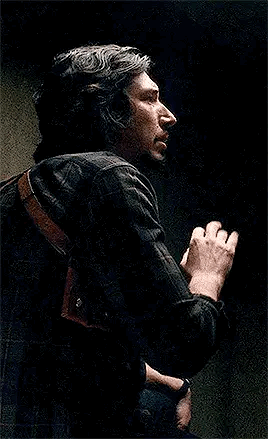


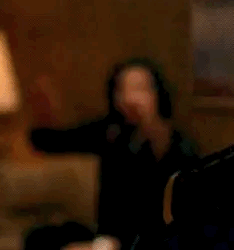
Flip is truly god awful in the kitchen. He has been almost permanently banned, with a few narrow exceptions. He does quite a good job at pancakes. The nickname 'Flip' comes from him flipping pancakes like a show off as a young fool and splattering himself with grease, thereby getting a round pockmark looking scar on his chest that he likes to lead people to believe is a bullet wound.
However, he is allowed to have a grill. Outside. Where the risk of burning the house down drops from extreme to moderate. He can grill steaks like a bad ass. He deadpans that it's part of some primal male instinct that involves bloodlust and hunting and fire. Or some horseshit along those lines. His culinary skills begin and end at grilling meats. Occasionally, he can add cheese to a burger without incident, but he knows better than to venture further out than that. It can't be denied that his steaks and burgers are to die for. Or as he puts to you when it's just the two of you, they're good enough to orgasm for, and he will make sure you do. When he really wants to wine and dine you, he will cook in just his jeans with his tits out for your viewing pleasure. When he's feeling funny, he will wear a frilly apron over his jeans and bare chest and let you laugh at him.
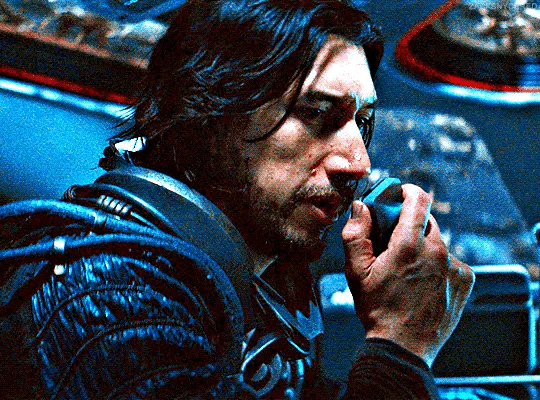

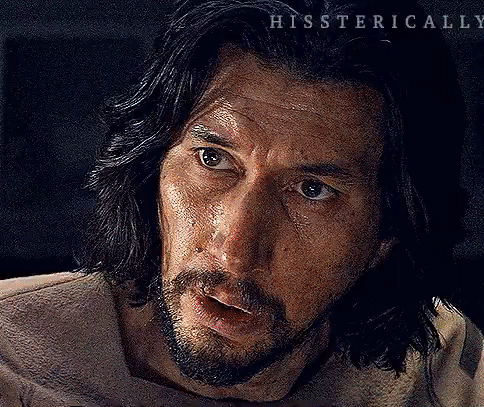

In my canon, Nicholas Mills is an ex fighter pilot. He was a bad boy growing up, the rebellious sort who wouldn't cut his hair or go to church or respect authority simply because it was authority. This disagreement came to blows several times with his father. Mills never struck the old man back, but it was sufficient provocation that he could restrain his father even with a broken nose to ship him off to the military to get his ass straightened out. Mills hated it, every second. He wasn't suited to the authority and the rules. But all that stayed on the ground when he took off in a jet. The freedom he felt from the first time he climbed into the cockpit was euphoric. He put up with the rules and the authority and the bullshit, even the horrible haircut, just so he could feel that freedom, chase the high that only came with flying.
After leaving the military and a nasty divorce after that, Mills was thoroughly sick of rules and regulations and authority and fucking people in general. He was smart enough to keep a separate bank account and stash away enough money to buy a plane of his own. You could say Mills skipped town. Skipped the country actually. All the way to Northern British Columbia. Someplace he can be left alone and unbothered, living the life he wants. He makes a surprisingly good living as a bush pilot, running supplies out to folks even more remote than him and flying out sportsman and outdoorsmen into the wilderness, and the occasional rescue job.
Never in a million years did Mills expect to meet a knockout like you out on one of these runs, his dream girl. And now, he's the only man who has a chance in hell of getting you both out of the wilderness alive.
I may have a fic like this in the works...
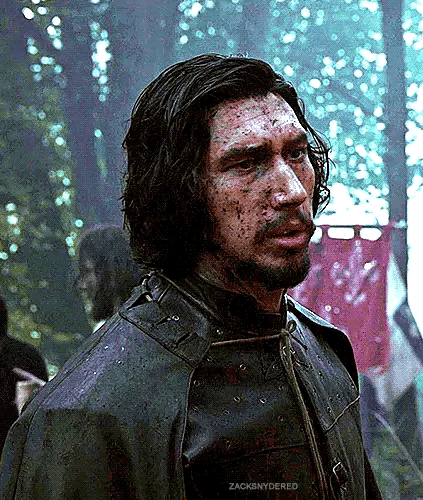

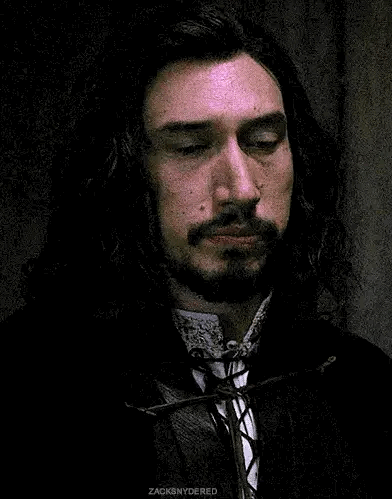
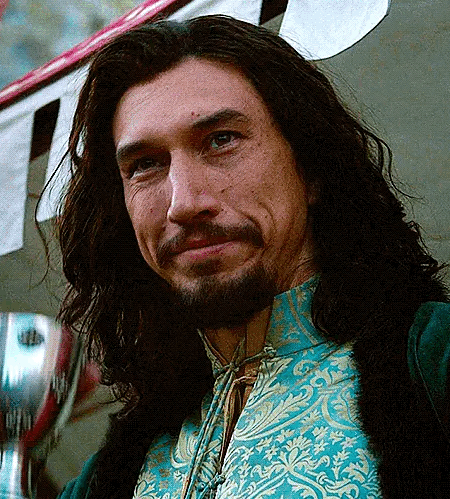
Jacques is an avid reader. He's educated and quite an intellectual, although he likes to downplay that arrow in his quiver. It pays to be underestimated. He enjoys poetry most of all and he's more of a sucker for flowery prose and romantic ideation than he openly admits. When he gets caught, he blames his interest in poetry as a necessary skill developed to get under women's skirts.
Once he's close enough to let his guard down, he will reveal his favorites and tell you how you've been in every line he's ever read. He loves to read to you. In the beginning, this was a way to seduce you into bed. It has since become his way to lull you to sleep when you're already in bed or to help you unwind while sprawled out by the fire.
He will read your favorite books with you or begin a new one together that you chose just to share the experience with you. It goes without saying that whenever you get inspired by a particular scene, Jacques is not only happy but eager and enthusiastic to act it out with you. He will invariably put the male characters to shame.

#hearts#my stuff!#my writing#65#flip#jacques#commander mills x reader#commander mills x you#flip zimmerman x you#flip zimmerman x reader#jacques le gris x reader#jacques le gris x you
16 notes
·
View notes
Text

Chapter VIII. Of the Responsibility of Man and Of God, Under the Law of Contradiction, Or a Solution of the Problem of Providence.
THE ancients blamed human nature for the presence of evil in the world.
Christian theology has only embroidered this theme in its own fashion; and, as that theology sums up the whole religious period extending from the origin of society to our own time, it may be said that the dogma of original sin, having in its favor the assent of the human race, acquires by that very fact the highest degree of probability.
So, according to all the testimony of ancient wisdom, each people defending its own institutions as excellent and glorifying them, it is not to religions, or to governments, or to traditional customs accredited by the respect of generations, that the cause of evil must be traced, but rather to a primitive perversion, to a sort of congenital malice in the will of man. As to the question how a being could have perverted and corrupted itself originally, the ancients avoided that difficulty by fables: Eve’s apple and Pandora’s box have remained celebrated among their symbolic solutions.
Not only, then, had antiquity posited in its myths the question of the origin of evil; it had solved it by another myth, in unhesitatingly affirming the criminality ab ovo of our race.
Modern philosophers have erected against the Christian dogma a dogma no less obscure, — that of the depravity of society. Man is born good, cries Rousseau, in his peremptory style; but society — that is, the forms and institutions of society — depraves him. In such terms was formulated the paradox, or, better, the protest, of the philosopher of Geneva.
Now, it is evident that this idea is only the ancient hypothesis turned about. The ancients accused the individual man; Rousseau accuses the collective man: at bottom, it is always the same proposition, an absurd proposition.
Nevertheless, in spite of the fundamental identity of the principle, Rousseau’s formula, precisely because it was an opposition, was a step forward; consequently it was welcomed with enthusiasm, and it became the signal of a reaction full of contradictions and absurdities. Singular thing! it is to the anathema launched by the author of “Emile” against society that modern socialism is to be traced.
For the last seventy or eighty years the principle of social perversion has been exploited and popularized by various sectarians, who, while copying Rousseau, reject with all their might the anti-social philosophy of that writer, without perceiving that, by the very fact that they aspire to reform society, they are as unsocial or unsociable as he. It is a curious spectacle to see these pseudo-innovators, condemning after Jean Jacques monarchy, democracy, property, communism, thine and mine, monopoly, wages, police, taxation, luxury, commerce, money, in a word, all that constitutes society and without which society is inconceivable, and then accusing this same Jean Jacques of misanthropy and paralogism, because, after having seen the emptiness of all utopias, at the same time that he pointed out the antagonism of civilization, he sternly concluded against society, though recognizing that without society there is no humanity.
I advise those who, on the strength of what slanderers and plagiarists say, imagine that Rousseau embraced his theory only from a vain love of eccentricity, to read “Emile” and the “Social Contract” once more. That admirable dialectician was led to deny society from the standpoint of justice, although he was forced to admit it as necessary; just as we, who believe in an indefinite progress, do not cease to deny, as normal and definitive, the existing state of society. Only, whereas Rousseau, by a political combination and an educational system of his own, tried to bring man nearer to what he called nature, and what seemed to him the ideal society, we, instructed in a profounder school, say that the task of society is to continually solve its antinomies, — a matter of which Rousseau could have had no idea. Thus, apart from the now abandoned system of the “Social Contract,” and so far as criticism alone is concerned, socialism, whatever it may say, is still in the same position as Rousseau, forced to reform society incessantly, — that is, to perpetually deny it.
Rousseau, in short, simply declared in a summary and definitive manner what the socialists repeat in detail and at every moment of progress, — namely, that social order is imperfect, always lacking something. Rousseau’s error does not, can not lie in this negation of society: it consists, as we shall show, in his failure to follow his argument to the end and deny at once society, man, and God.
However that may be, the theory of man’s innocence, corresponding to that of the depravity of society, has at last got the upper hand. The immense majority of socialists — Saint-Simon, Owen, Fourier, and their disciples; communists, democrats, progressives of all sorts — have solemnly repudiated the Christian myth of the fall to substitute there for the system of an aberration on the part of society. And, as most of these sectarians, in spite of their flagrant impiety, were still too religious, too pious, to finish the work of Jean Jacques and trace back to God the responsibility for evil, they have found a way of deducing from the hypothesis of God the dogma of the native goodness of man, and have begun to fulminate against society in the finest fashion.
The theoretical and practical consequences of this reaction were that, evil — that is, the effect of internal and external struggle — being abnormal and transitory, penal and repressive institutions are likewise transitory; that in man there is no native vice, but that his environment has depraved his inclinations; that civilization has been mistaken as to its own tendencies; that constraint is immoral, that our passions are holy; that enjoyment is holy and should be sought after like virtue itself, because God, who caused us to desire it, is holy. And, the women coming to the aid of the eloquence of the philosophers, a deluge of anti-restrictive protests has fallen, quasi de vulva erumpens, to make use of a comparison from the Holy Scriptures, upon the wonder-stricken public.
The writings of this school are recognizable by their evangelical style, their melancholy theism, and, above all, their enigmatical dialectics.
“They blame human nature,” says M. Louis Blanc, “for almost all our evils; the blame should be laid upon the vicious character of social institutions. Look around you: how many talents misplaced, and CONSEQUENTLY depraved! How many activities have become turbulent for want of having found their legitimate and natural object! They force our passions to traverse an impure medium; is it at all surprising that they become altered? Place a healthy man in a pestilent atmosphere, and he will inhale death.... Civilization has taken a wrong road,... and to say that it could not have been otherwise is to lose the right to talk of equity, of morality, of progress; it is to lose the right to talk of God. Providence disappears to give place to the grossest fatalism.”
The name of God recurs forty times, and always to no purpose, in M. Blanc’s “Organization of Labor,” which I quote from preference, because in my view it represents advanced democratic opinion better than any other work, and because I like to do it honor by refuting it.
Thus, while socialism, aided by extreme democracy, deifies man by denying the dogma of the fall, and consequently dethrones God, henceforth useless to the perfection of his creature, this same socialism, through mental cowardice, falls back upon the affirmation of Providence, and that at the very moment when it denies the providential authority of history.
And as nothing stands such chance of success among men as contradiction, the idea of a religion of pleasure, renewed from Epicurus during an eclipse of public reason, has been taken as an inspiration of the national genius; it is this that distinguishes the new theists from the Catholics, against whom the former have inveighed so loudly during the last two years only out of rivalry in fanaticism. It is the fashion today to speak of God on all occasions and to declaim against the pope; to invoke Providence and to scoff at the Church. Thank God! we are not atheists, said “La Reforme” one day; all the more, it might have added by way of increasing its absurdity, we are not Christians. The word has gone forth to every one who holds a pen to bamboozle the people, and the first article of the new faith is that an infinitely good God has created man as good as himself; which does not prevent man, under the eye of God, from becoming wicked in a detestable society.
Nevertheless it is plain, in spite of these semblances of religion, we might even say these desires for it, that the quarrel between socialism and Christian tradition, between man and society, must end by a denial of Divinity. Social reason is not distinguishable by us from absolute Reason, which is no other than God himself, and to deny society in its past phases is to deny Providence, is to deny God.
Thus, then, we are placed between two negations, two contradictory affirmations: one which, by the voice of entire antiquity, setting aside as out of the question society and God which it represents, finds in man alone the principle of evil; another which, protesting in the name of free, intelligent, and progressive man, throws back upon social infirmity and, by a necessary consequence, upon the creative and inspiring genius of society all the disturbances of the universe.
Now, as the anomalies of social order and the oppression of individual liberties arise principally from the play of economic contradictions, we have to inquire, in view of the data which we have brought to light:
1. Whether fate, whose circle surrounds us, exercises a control over our liberty so imperious and compulsory that infractions of the law, committed under the dominion of antinomies, cease to be imputable to us? And, if not, whence arises this culpability peculiar to man?
2. Whether the hypothetical being, utterly good, omnipotent, omniscient, to whom faith attributes the supreme direction of human agitations, has not himself failed society at the moment of danger? And, if so, to explain this insufficiency of Divinity.
In short, we are to find out whether man is God, whether God himself is God, or whether, to attain the fullness of intelligence and liberty, we must search for a superior cause.
#organization#revolution#anarchism#daily posts#communism#anti capitalist#anti capitalism#late stage capitalism#anarchy#anarchists#libraries#leftism#social issues#economy#economics#climate change#anarchy works#environmentalism#environment#solarpunk#anti colonialism#mutual aid#the system of economic contradictions#the philosophy of poverty#volume i#pierre-joseph proudhon#pierre joseph proudhon
12 notes
·
View notes